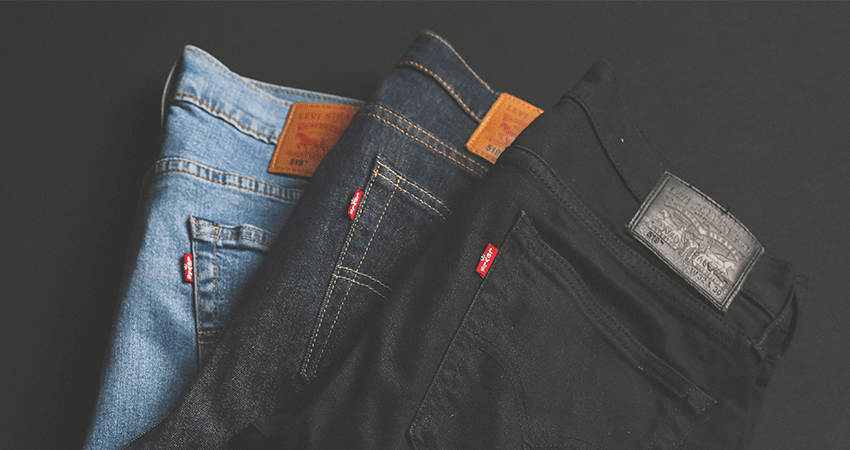Levi Strauss: jeans born in the 1849 Gold Rush (photo credit: Mnz on Unsplash)
While iconic denim maker Levi Strauss has been a direct-to-consumer sales powerhouse for the past few years, an area where many brands large and small have placed their bets for sustained growth as wholesale has struggled, the company’s DTC numbers slipped a bit in the fourth quarter.
Levi Strauss reported net revenue from DTC was down 2% in Q4 on a reported basis but up 6% on a constant-currency basis, with strength in company-owned stores in the Americas and Asia as drivers. This offset a decline in Europe, primarily due to store closures in Russia in response to the nearly year-old Ukraine conflict; it had been a major market for the company.
To illustrate the negative impact, Q4 sales in Europe were down 8% for Levi Strauss on a constant currency basis, with half of that loss attributed to the Russia pullout. On a reported basis, they declined 18% in Europe.
Constant currency reporting is used to show performance outside of often volatile currency fluctuations for international businesses.
Excluding Russia, DTC net revenue for Levi Strauss was up 10% on a constant currency basis, driven by sales strength in the Americas, Asia and Europe. Sales from DTC and ecommerce were 31% and 8%, respectively, in Q4. The company has set a goal of reaching DTC sales representing 55% of topline by 2027, and increased its owned-store fleet by 19% in 2022.
“We continue to make progress against our strategic priorities, positioning us for further success in 2023,” said Levi Strauss CEO Chip Bergh in an earnings release. “We remain the category leader in denim globally, making consistent market share gains year-over-year. Our high margin DTC business is delivering exceptional results and our diversification efforts provide additional growth drivers for sustainable long-term growth.”
Q4 net revenue for Levi Strauss was down 6% to $1.59 billion, ahead of the Refinitiv consensus of $1.57 billion, but flat on a constant-currency basis, as DTC strength offset ongoing weakness in wholesale. Net income was down 1% to $151 million or 34 cents per share, but up 4% on a constant currency basis and ahead of the consensus figure of 29 cents per share.
In November, we a featured DTC native brand that’s going against the flow in our MCM CommerceChat podcast. Alen jumped into wholesale in a big way in 2022, gaining shelf space at 300 Lowe’s stores, with an eye toward expansion this year.

